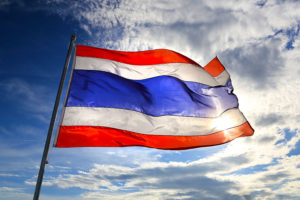Philippines could net US$373m in e-sabong taxes

The market is estimated at US$3.1m a day for each operator, and the collection could be even bigger if service providers are also taxed.
The Philippines.- While lawmakers are still discussing the possibility of taxing legal e-sabong events – cockfights transmitted through streaming platforms, industry sources believe such a move could increase the tax collection by about Php18bn (US$373.1m).
An article published by Philstar states that gambling on online sabong events is worth Php1.5bn (US$31m). Of the total income, 90 per cent is paid out to the winners and operators keep 10 per cent or Php150m a day.
Conservatively, in each fight Php5m (US$ 103,605) is placed in bets and each operator stages about 12 fights per hour, grossing Php60 million (U$S1.24 million). The games run for ten hours a day, for Php600 million gross (US$12.4 million).
Two main platforms operate the majority of a market that took off during the pandemic. It is believed they each make about Php55bn (US$1.13bn) a year from the operations. If that income was taxed at the usual one-third rule, the government would stand to make Php18 billion (US$373.1 million).
The collection would be even larger if service providers for e-sabong platforms were taxed as well.
The idea to charge a tax on the operations comes as the Philippines is looking for extra income for Covid-19 relief efforts. Gaming tax collection has plummeted since casino operations are restricted, offshore gaming operators are leaving the country, and other activities such as lotto have been losing ground.
In this context, e-sabong is still alive and well, and under the 1974 gaming law it is legal at licensed cockpits on Sundays and legal holidays.
In October, the Philippine Amusement and Gaming Corp. said it would establish mechanisms to legalise sabong streaming events from authorised cockpits.
The move would serve the purpose of avoiding physical gatherings while also increasing government income from gaming taxes.
Chairperson for the Philippine House Committee on Ways and Means, Joey Sarte Salceda, had filed House Bill No. 7919 aiming to collect a 5 per cent tax on gross revenues from online gaming activities.
The committee in the Philippines House of Representatives that oversees fiscal, financial and monetary issues pertaining to the national government, gave the green light this week to move forward with the proposal.
The measure would exclude PAGCOR activities as well as those run by the Philippine Charity and Sweepstakes Office (PCSO). It would allow the Bureau of Internal Revenue (BIR) to inspect and accredit gambling devices used to record the wagers.
Salceda said while presenting the bill: “The operations are already legal, by virtue of local ordinances, but the electronic aspect of it is a legal grey area. Because of the ambiguity, we are unable to levy national taxes on these activities or look into their operations.”









